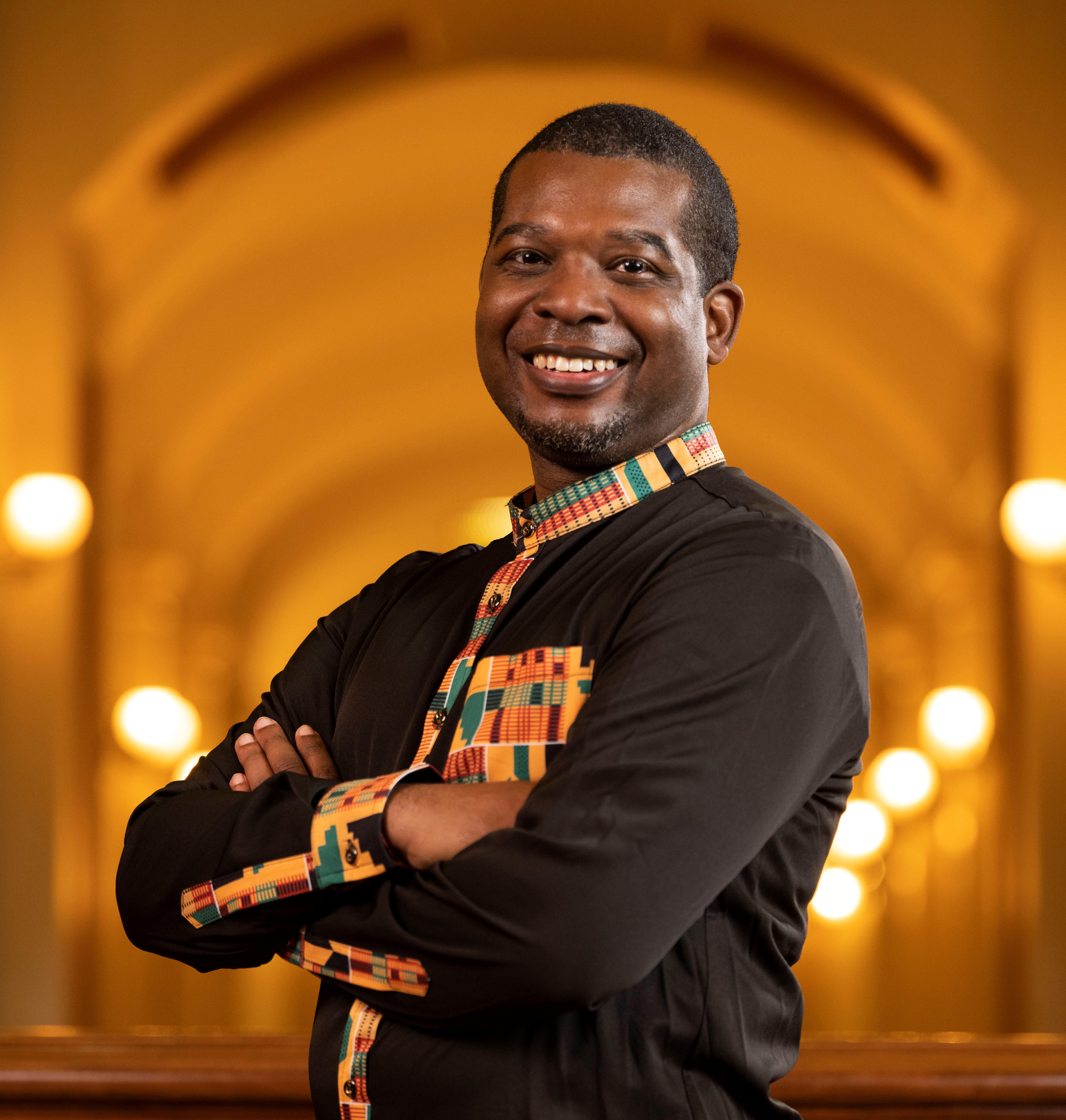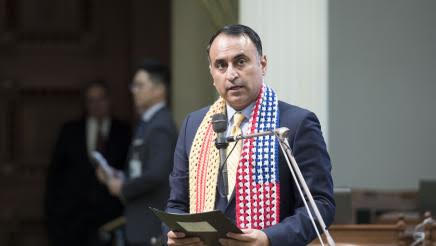By Edward Henderson | California Black Media
Assemblymembers Corey Jackson (D-Riverside) and Ash Kalra (D- San Jose) have introduced a resolution to alter the dress code on the floor of the lower chamber of the State Legislature.
House Resolution 9 (HR9) would make it appropriate for individuals visiting the chamber floor to wear attire considered professional dress based on various cultural standards.
According to Assembly Rule 118.1, “Members of the Legislature, officers or employees of the Legislature, accredited members of the press, or any other persons may be restricted from admission to the Floor of the Assembly if they are inappropriately attired”. As the current rule stands, there is room for discrimination against attire that does not meet Eurocentric standards, proponents of HR 9 say.
“Eurocentrism, which refers to a bias on the vantage point of European and Western cultures, has played a role in establishing what is considered “appropriate” fashion, often forcing individuals to adopt various forms of professional attire that conflict with their ethnic or religious backgrounds,” Kalra and Jackson stated in a press release.
“With increased emphasis on anti-racism and inclusion, it is imperative that the Legislature and its members adopt this House Resolution to welcome professional attire of all cultures, ethnicities, and nationalities, so we are able to serve the people in the State of California,” the lawmakers added.
Jackson, who received his doctorate in social work, says he is s aware of the microaggressions that perpetuate racism within professional spaces.
“I’m using HR9 to educate people about how sinister racism is in our society. To make sure that people understand that it’s not just the big things like hate crimes and mass shootings due to race. But, also, it’s the little things we’ve been taught since we are children in America; that is Eurocentric hair, skin tones and dress is superior to anything else.”
In his own form of protest, Jackson rarely abides by the traditional expectations of dress on the chamber floor by not wearing suits and ties. At least once a week, he wears a dashiki.
“I am just sending a message that if California is going to call itself a state that is proud of its diversity — that it is anti-racism, anti-hate, anti-xenophobia, anti-discrimination, we need to start with the State Capitol itself.”
While there hasn’t been a specific incident where an Assemblymember was denied entry to the chamber floor because of their cultural garb, Jackson has received complaints about not wearing a suit and tie.
The spirit behind HR9 has drawn comparisons to the “CROWN Act”.
The CROWN Act (Senate Bill 188) was drafted and sponsored by State Senator Holly Mitchell. It passed unanimously in both chambers of the Legislature and was signed into law on July 3, 2019.
Mitchell is currently a Los Angeles County Supervisor representing the 2nd District.
The act ensures protection against discrimination based on race-based hairstyles by extending statutory protection to hair texture and protective styles such as braids, locs, twists, and knots in the workplace and public schools.
So far, Jackson and Kalra have received support from Democrats and Republicans on the resolution as they have pointed out that their legislation is not calling for a removal of professional attire standards, but for the inclusion of cultural equivalents of professional attire.
The resolution is currently going through the legislative process. If approved by relevant committees, it will move to the chamber floor where it will be heard and voted on by members of the Assembly.
 Westside Story Newspaper – Online The News of The Empire – Sharing the Quest for Excellence
Westside Story Newspaper – Online The News of The Empire – Sharing the Quest for Excellence






